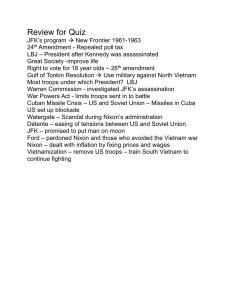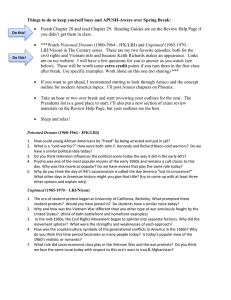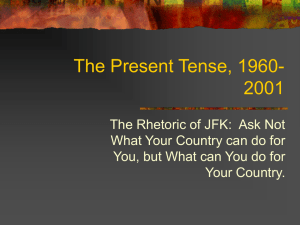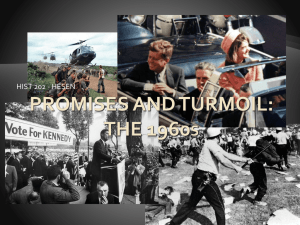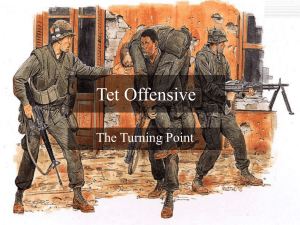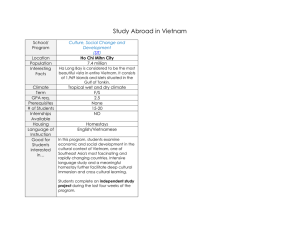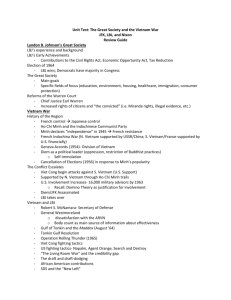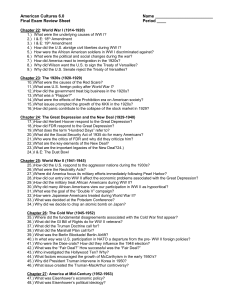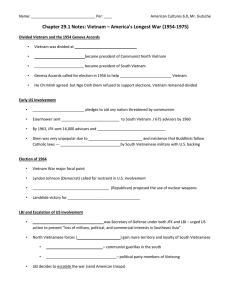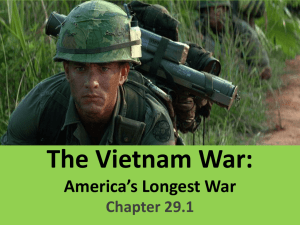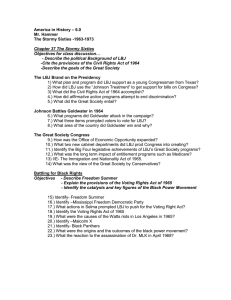Vietnam Lecture Anti-colonial resistance increased by WWII
advertisement
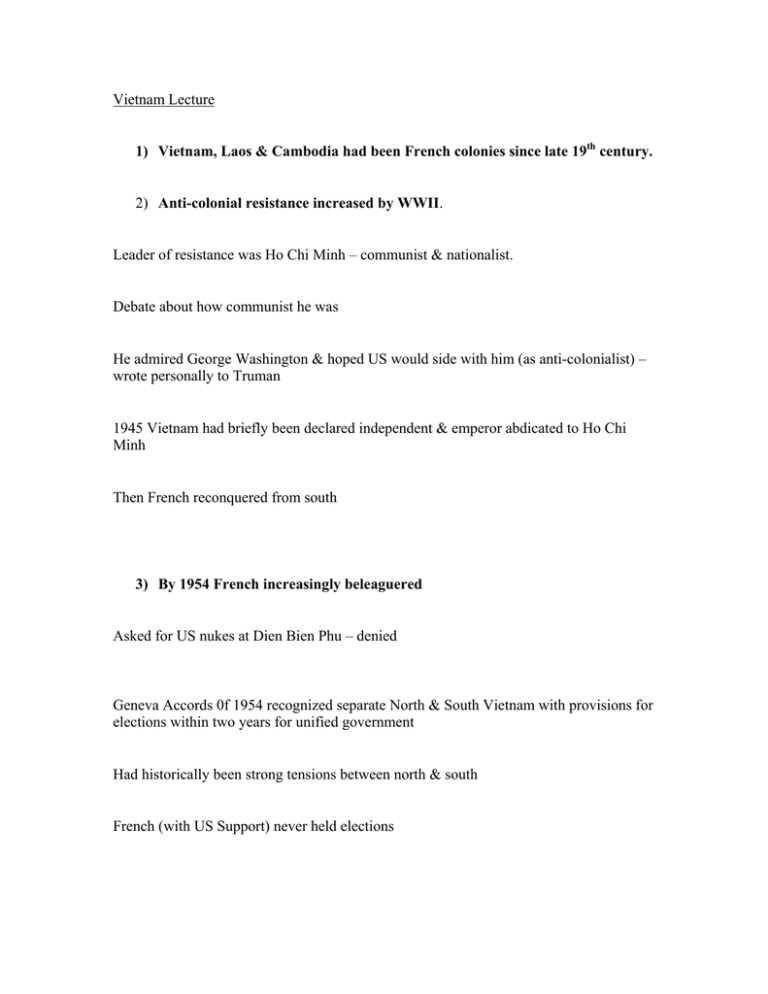
Vietnam Lecture 1) Vietnam, Laos & Cambodia had been French colonies since late 19th century. 2) Anti-colonial resistance increased by WWII. Leader of resistance was Ho Chi Minh – communist & nationalist. Debate about how communist he was He admired George Washington & hoped US would side with him (as anti-colonialist) – wrote personally to Truman 1945 Vietnam had briefly been declared independent & emperor abdicated to Ho Chi Minh Then French reconquered from south 3) By 1954 French increasingly beleaguered Asked for US nukes at Dien Bien Phu – denied Geneva Accords 0f 1954 recognized separate North & South Vietnam with provisions for elections within two years for unified government Had historically been strong tensions between north & south French (with US Support) never held elections 4) As French withdrew, US military advisers stepped in Eisenhower & JFK took over from French Ellsberg claims JFK would never have committed ground troops. Debatable Early 60s US working through military government in installed through US-backed coup 5) 1963 JFK assassinated & LBJ took over This is situation we come in on in Ellsberg’s book Domino theory & progressive failure of corrupt S. Vietnamese government Tonkin Gulf Resolution gave LBJ green light for escalation Bombing and/or troops seen as answer 6) LBJ went for ground troops Draft – deferments for college kids - medical exemptions manipulated by wealthy - national guard service for connected (like George W. Bush) (See Chris Appy, Working Class War). 7) LBJ would decide not to run in 68 cos of war’s toll on his mandate After Tet offensive 1968 Humphrey lost to Nixon, who claimed plan to end war (sound familiar?) Nixon & Kissinger escalated war, but eventually relied more on bombing & less on troops Napalm, agent orange, Secret war in Cambodia More tonnage dropped on Vietnam than in all of WWII (including the atomic bombs) 8) US withdrew 1974 & Vietnam unified Boat people
